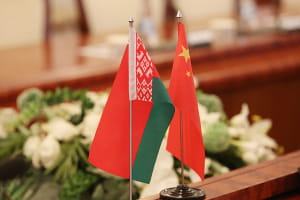- Antibiotics Tests in Milk
- Inhibitory detection test
- Laboratory equipment
- Centrifuges
- Indicator strips
- Autoclaves
- Scales
- Thermometers
- Packing
- PureTrust ATP monitoring
- ATP monitoring PIONEERPRODUKT CleanTrust
- MICROFAST® substrates
- Nutrient media
- Ice cream sticks
- Consumables
- Detergents and disinfectants
- Treatment agent
- Milk filters
- Wipes
- Gloves
- Sampling
Under the supervision of the Rosselkhoznadzor Administration, a large batch of goat wool was sent from Khakassia to China
The Office of ROSSELKHOZNADZOR for the Republics of Khakassia and Tyva and Kemerovo Oblast - Kuzbass constantly monitors the compliance of controlled goods with the requirements of importing countries when moving outside the Russian Federation.
From the point of view of EXPORT potential, one of the promising areas of economic activity of farming enterprises of the Republic of Khakassia is such a traditional industry for the steppe zone as sheep breeding. In total, there are about 150 thousand heads of small cattle at livestock enterprises of the region, and another 100 thousand heads of sheep are kept in private farms.
Wool for processing is accepted by enterprises upon availability of veterinary accompanying documents (VSD) issued in the FGIS "Mercury". VSD characterize the safety of raw materials and the status of the area in terms of infectious diseases, including especially dangerous and common for humans and animals. Today, the epizootic situation in Khakassia is favorable, which allows sending the produced goat wool not only to Russian textile enterprises, but also abroad.
The shipment of a new batch of washed goat wool for export was controlled by inspectors of the State Veterinary Supervision Department on August 14 of this year. The products in the amount of 60 tons, packed in bales, were sent by road from the economic entity IP Sitnikov Yu.S. Ust-Abakan settlement of the Republic of Khakassia through the crossing point Zabaikalsk - Manchuria.
The controlled goods were inspected for compliance with the requirements of the importing country, and the presence of markings and documents confirming the epizootic well-being of the place of product exit was also checked. Based on the inspection results, the entrepreneur was issued an international veterinary certificate for sending the cargo to its destination. Based on the permission of Rosselkhoznadzor, the wool was exported in accordance with the international contract.
Thus, agricultural enterprises of the Republic of Khakassia are seriously considered by importers as suppliers of raw materials and products of animal origin, which contributes to the development of export relations of the region not only with the member states of the Eurasian Economic Union, but also with third countries.
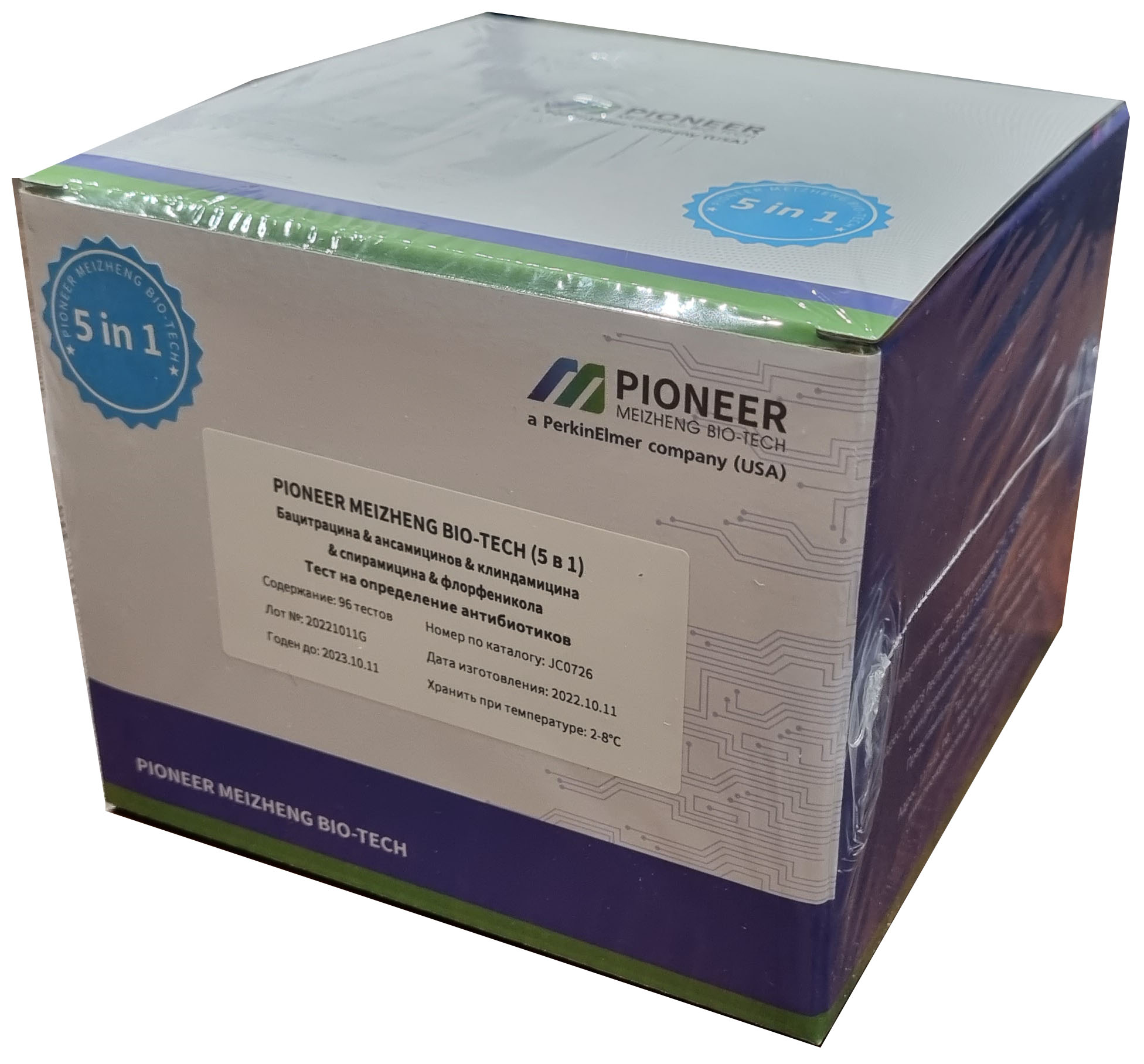 PIONEER MEIZHENG BIO-TECH (5 in 1) JC0726 / Rapid tests for determining the residual amount of Bacitracin, ansamycins, clindamycin, spiramycin, florfenicol in milk, whey
PIONEER MEIZHENG BIO-TECH (5 in 1) JC0726 / Rapid tests for determining the residual amount of Bacitracin, ansamycins, clindamycin, spiramycin, florfenicol in milk, whey Rapid tests for determining the residual amount of tetracyclines in meat
Rapid tests for determining the residual amount of tetracyclines in meat Express tests for determining the residual amount of β-lactams and tetracyclines in milk, whey
Express tests for determining the residual amount of β-lactams and tetracyclines in milk, whey PIONEER MEIZHENG BIO-TECH (5 in1) JC0586 - Antibiotic tests 5 in 1 / Rapid tests for determining the residual amount of β-lactams, tetracyclines and cephalexin in milk, whey
PIONEER MEIZHENG BIO-TECH (5 in1) JC0586 - Antibiotic tests 5 in 1 / Rapid tests for determining the residual amount of β-lactams, tetracyclines and cephalexin in milk, whey PIONEER MEIZHENG BIO-TECH (5 in1) JC1165 / Rapid tests for the determination of the residual amount of halofuginone, flavomycin, novobiocin, flunixin, dexamethasone / prednisolone in milk, whey
PIONEER MEIZHENG BIO-TECH (5 in1) JC1165 / Rapid tests for the determination of the residual amount of halofuginone, flavomycin, novobiocin, flunixin, dexamethasone / prednisolone in milk, whey ANTIBIOTICS / ELISA TESTS
ANTIBIOTICS / ELISA TESTS- Express tests for determining the residual amount of β-lactams, tetracyclines, chloramphenicol, streptomycins in milk, whey
- Rapid tests for determining the residual amount of chloramphenicol in meat
- Rapid tests for fluoroquinolone, erythromycin, lincomycin, tillosin and tilmycosin residues in milk, whey
- Rapid 4 in 1 tests for determining the residual amount of neomycin, kanamycin, gentamicin, spectinomycin in milk, whey
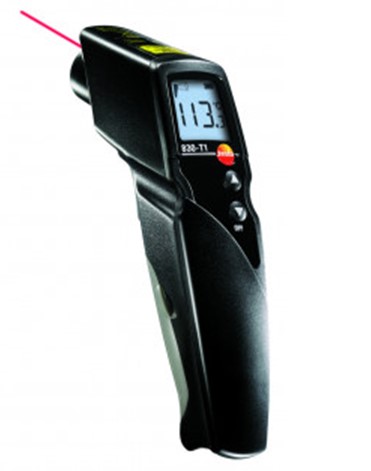 Infrared thermometer with laser pointer Testo 830-T1, Testo 830-T2
Infrared thermometer with laser pointer Testo 830-T1, Testo 830-T2 Lumitester SMART Luminometer
Lumitester SMART Luminometer testo 206-pH2 - Pocket pH meter
testo 206-pH2 - Pocket pH meter Laboratory heating plate PRN-6050-2
Laboratory heating plate PRN-6050-2 Light colored glass bottle without a faucet
Light colored glass bottle without a faucet MKV milk gauge
MKV milk gauge- Milk quality analyzer "Laktan 1-4M" 500 isp. MINI
- Magnetic stirrer С-MAG HS7
- pH/temperature meter Testo 205 (Germany)
- Integral C-01 electronic stopwatch
- VISCO Viscometer
- Thermostats / incubators Memmert IN/IF series (Germany)
- Mug for pouring milk (Russia)
- Bürkle dosing spoons (0.5 to 50 ml) sterile
- Table island low BA-CL- X.X Son TR
 Backed Foil
Backed Foil KH PACK® tartlet paper
KH PACK® tartlet paper Salad dressings
Salad dressings Carton
Carton Paper sacks
Paper sacks Paper for micro-ribbed
Paper for micro-ribbed- KH PACK® bag making paper
- Laminating paper KH PACK®
- Korreks for confectionery
- Cartons for milk and dairy products
- KH PACK® Straight Packing Paper
- Plastic packaging for cakes and pastries
- Parchment
- Ice cream chopsticks
- Korreks for desserts
 Ice cream sticks (round)
Ice cream sticks (round) Petri dish 90 mm
Petri dish 90 mm Ice cream sticks (with logo)
Ice cream sticks (with logo) Ice cream sticks Magnum (curly)
Ice cream sticks Magnum (curly) Auxiliaries for sugar products
Auxiliaries for sugar products Wafer cup and cone
Wafer cup and cone- Ice cream sticks Standard 114
- Ice cream sticks Standard 93
- J-Bottom technology
- Pepsin whey pork
- General purpose environment of SPC "Biocompass-S" (Uglich)
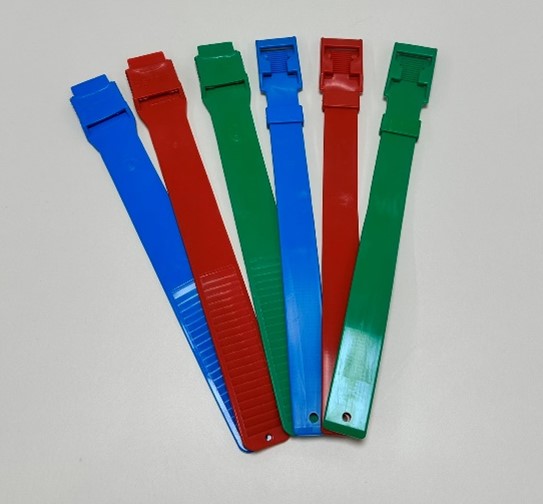 Plastic bracelet
Plastic bracelet Electric Cattle Driver
Electric Cattle Driver Spatula for mastitis test (Shalm's test)
Spatula for mastitis test (Shalm's test) Stainless steel obstetric aid
Stainless steel obstetric aid Fall with a loop for cattle
Fall with a loop for cattle Gas tailing cutter
Gas tailing cutter- Self-adhesive hoof bandage
- Napkin reusable for wiping the udder
- Pump for artificial ventilation of the lungs
- Alkaline detergent (20l / 24kg)
- Disinfectant with washing effect (10kg)
- Bag filter 32
- Acid detergent (20l / 24kg)
- Knife Hoofed
- Milk filters - primary cleaning
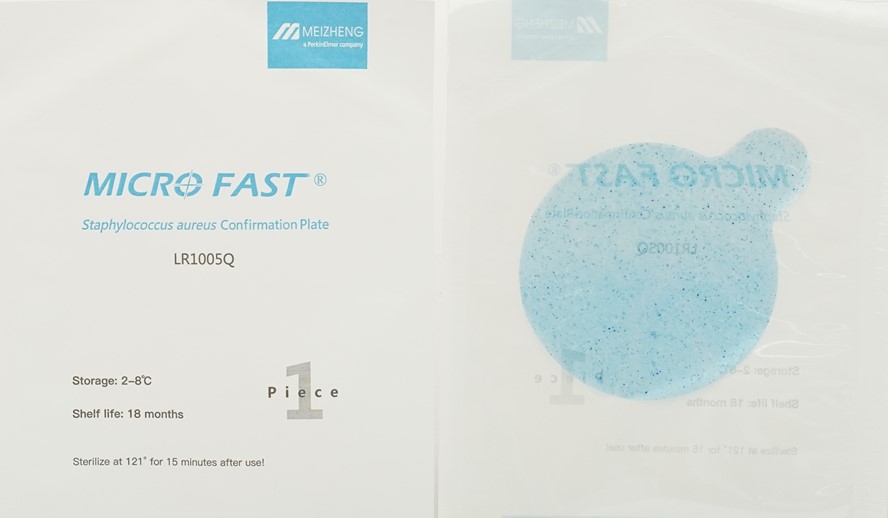 MicroFast® Staphyloccocus aureus Confirmation Plate Staph.aureus Confirmation Plate (cat. no. LR1005Q)
MicroFast® Staphyloccocus aureus Confirmation Plate Staph.aureus Confirmation Plate (cat. no. LR1005Q) MicroFast® Bacillus cereus Count Plate (catalog number LR1010)
MicroFast® Bacillus cereus Count Plate (catalog number LR1010) MicroFast® Enterobacteriaceae Count Plate (cat. no. LR1011)
MicroFast® Enterobacteriaceae Count Plate (cat. no. LR1011) MicroFast® Environmental Listeria Count Plate
MicroFast® Environmental Listeria Count Plate MicroFast® Microbiological Substrates
MicroFast® Microbiological Substrates Substrate for accelerated determination of QMAFAnM, (catalog number LR1321)
Substrate for accelerated determination of QMAFAnM, (catalog number LR1321)- Substrate for determining the number of staphylococci (Catalog number LR1005) MicroFast® Staphyloccocus aureus Count Plate
- Substrate for determining QMAFAnM (catalog number LR1001)
- MicroFast® Coliform & E.coli Count Plate
- Yeast & Mold Count Plate (cat. no. LR1003) MicroFast® Yeast & Mold Count Plate
- Coliform Count Plate (catalog number LR1002) MicroFast® Coliform Count Plate
- MicroFast® Salmonella Count Plate (SAL), for the determination of Salmonella in food and environmental samples (Catalog #LR1006)
- MicroFast® Lactic Acid Bacteria Count Plate (Part Number LR1312)
 Совместные проекты и обмен опытом. В каких направлениях Беларусь и Казахстан готовы развивать сотрудничество в АПК 24.10.2025
Совместные проекты и обмен опытом. В каких направлениях Беларусь и Казахстан готовы развивать сотрудничество в АПК 24.10.2025 Беларусь и Алтайский край намерены увеличить биржевую торговлю сельхозпродукцией24.10.2025
Беларусь и Алтайский край намерены увеличить биржевую торговлю сельхозпродукцией24.10.2025 Минск и Алжир готовят переговоры на высшем уровне. Почему Беларусь нацелилась на Север Африки?24.10.2025
Минск и Алжир готовят переговоры на высшем уровне. Почему Беларусь нацелилась на Север Африки?24.10.2025- "Ambitious plans." Brest Regional Executive Committee on the region's contribution to food security in the Union State. 23.10.2025
- Decree: Regional executive committees are granted the right to form agricultural raw material zones23.10.2025
- New support measure for the agricultural sector. The Ministry of Agriculture and Food explained the legislative changes.23.10.2025
- Recognition of merit and dedication. State awards were presented in Minsk to representatives of various fields.23.10.2025
- The Belarusian delegation held talks in Kampala with colleagues from Uganda, Iran, and India.17.10.2025
- Azerbaijan entered the top three largest buyers of forest products at the Belarusian Commodity Exchange (BUCE).17.10.2025
- New Products and Volume Growth. The Ministry of Agriculture and Food on the Dairy Industry Development Strategy through 2035.17.10.2025
- Ministry of Agriculture and Food: Belarus is growing its milk production16.10.2025
- Ambassador: Belarusian food exports to Kazakhstan have increased significantly16.10.2025
- Belarusian goods account for 94% of Russian dairy imports.16.10.2025
- A black-and-white past and a colorful present. Young professionals from the Minsk region visited the BELTA exhibition "Belarus. Takeoff."16.10.2025
- Belstat reported how much agricultural produce was produced in Belarus in January-September of this year.15.10.2025
- Fiberglass, lumber, composites. Belarus demonstrates export potential in Azerbaijan.15.10.2025
 Product quality violations were discovered at the Pravilnye Produkty plant.23.10.2025
Product quality violations were discovered at the Pravilnye Produkty plant.23.10.2025 Nalchik Meat Processing Plant Puts Its Accounts Receivable Up for Auction23.10.2025
Nalchik Meat Processing Plant Puts Its Accounts Receivable Up for Auction23.10.2025 Modernization of poultry farming in the Nizhny Novgorod region: new opportunities and production growth23.10.2025
Modernization of poultry farming in the Nizhny Novgorod region: new opportunities and production growth23.10.2025- Increasing egg production of laying hens in Kabardino-Balkaria: successes and prospects23.10.2025
- Rostov wholesaler Everest is merging with a loss-making meat supplier from Donetsk.23.10.2025
- Proper insemination of cows: how genetic and physiological factors influence herd productivity23.10.2025
- The quarantine for farm animals due to leukemia has been lifted in the village of Gusevo.23.10.2025
- Omsk Region has significantly increased poultry production.23.10.2025
- Indonesia: New rules to protect farm animals23.10.2025
- US: Pork market has shown mixed performance in recent months23.10.2025
- Argentine Beef Imports: Challenges for American Farmers23.10.2025
- China's beef market: shift to affordable cuts and growing Australian supplies23.10.2025
- Donald Trump said the US will buy more Argentine beef to lower prices.23.10.2025
- China's chilled and frozen beef imports hit a record high in September 2025.23.10.2025
- Brazil forecasts record per capita pork and chicken consumption in 2025 and 2026.23.10.2025
- Meat consumption has increased in Argentina.23.10.2025
 10 reasons to take a deposit04.05.2025
10 reasons to take a deposit04.05.2025 Callas spoke about the EU's joy over new US sanctions against Russia.24.10.2025
Callas spoke about the EU's joy over new US sanctions against Russia.24.10.2025 Постпредство России назвало санкции ЕС «сизифовым трудом»24.10.2025
Постпредство России назвало санкции ЕС «сизифовым трудом»24.10.2025- Путин оценил новые санкции США24.10.2025
- Путин вспомнил, когда Трамп ввел наибольшее число санкций против России24.10.2025
- Белый дом заявил о надежде на то, что новые санкции нанесут вред России24.10.2025
- The EU imposed sanctions against Medvedev's aide and the HSE rector.23.10.2025
- Politico learned of a split in the EU over a new €140 billion loan to Ukraine.23.10.2025
- The European Union has banned the import of motorized toys into Russia.23.10.2025
- The Russian Union of Travel Industry (RUTI) clarified that EU sanctions will not affect Russian tourism.23.10.2025
- AvtoVAZ and Polyus were included in the 19th package of EU sanctions against Russia.23.10.2025
- The United States imposed sanctions against Rosneft and Lukoil.23.10.2025
- Trump called on Russia for an immediate ceasefire after the imposition of sanctions.23.10.2025
- How Trump moved to tough sanctions and abandoned a summit with Putin23.10.2025
- Bessent named the reason for the introduction of sanctions against Russia23.10.2025
- The US has been given a month to wind down operations with Rosneft and LUKOIL.23.10.2025
 В Британии предупредили о риске для миллионов из-за супербактерий06.01.2025
В Британии предупредили о риске для миллионов из-за супербактерий06.01.2025 Moscow court sides with Indian company in dispute with Health Ministry26.11.2024
Moscow court sides with Indian company in dispute with Health Ministry26.11.2024 Scientists estimate increase in mortality due to drug-resistant bacteria29.10.2024
Scientists estimate increase in mortality due to drug-resistant bacteria29.10.2024- Antibiotics for livestock and pesticides found in poisoned family's home29.10.2024
- Izvestia reported on the shortage of widely used antibiotics in Russia29.10.2024
- The Ministry of Health called data on the shortage of antibiotics unreliable29.10.2024
- Scientists warn of threat of return to pre-penicillin times29.10.2024
- The Ministry of Health explained how attitudes towards antibiotics changed during the pandemic07.05.2024
- WHO explains the risks of taking antibiotics "just in case"06.05.2024
- Doctors warn of bad practices after government decision on antibiotics25.04.2024
- The Ministry of Health removed antibiotics and hormones from the standard treatment of ARVI25.04.2024
- Antibiotics in oil: myth or reality?06.03.2024
- Antibiotics in sour cream: myth or reality?05.03.2024
- Antibiotics in goat milk: effects, problems and control measures16.02.2024
- The Japanese will stop producing the popular antibiotic vilprafen in Russia23.12.2023
- Antibiotics in Milk21.12.2023
 Antibiotics in pollock25.02.2024
Antibiotics in pollock25.02.2024 Antibiotics in herring: myth or reality?12.02.2024
Antibiotics in herring: myth or reality?12.02.2024 Antibiotics in perch10.02.2024
Antibiotics in perch10.02.2024- Antibiotics in sprat: facts and myths10.02.2024
- Antibiotics in tuna: an important health and environmental issue09.02.2024
- Antibiotics in meat30.01.2024
- Antibiotics in chebureks: myth or reality?29.01.2024
- Antibiotics in cutlets: problem or myth?18.01.2024
- Antibiotics in Chicken: Where Are the Highest Concentrations?17.01.2024
- Antibiotics in carp17.01.2024
- Where Are More Antibiotics in Chicken: Reality and Cautions16.01.2024
- Antibiotics in Salmon: Safety and Product Quality16.01.2024
- Antibiotics in Turkey15.01.2024
- Antibiotics in Sal: Reality and Safety Issues15.01.2024
- Antibiotics in Fried Dumplings: Facts, Risks and How to Stay Safe15.01.2024
- Antibiotics in sausages14.01.2024
 Antibiotics in Coffee: Myths and Reality03.05.2025
Antibiotics in Coffee: Myths and Reality03.05.2025 Forged forks: 10 interesting facts16.05.2024
Forged forks: 10 interesting facts16.05.2024 Swimming pool and weight loss: 10 interesting facts10.03.2024
Swimming pool and weight loss: 10 interesting facts10.03.2024- Tests for antibiotics in milk - 10 interesting facts07.03.2024
- Cleaning the kettle from scale, 10 interesting facts...06.03.2024
- Antibiotics in beer: 10 interesting facts04.03.2024
- Wild boar, how to survive...01.03.2024
- Purulent mastitis, 10 interesting facts27.02.2024
- Lemon and alcohol: 10 interesting facts25.02.2024
- Mint - 10 interesting facts25.02.2024
- Wild boar, 10 interesting facts20.02.2024
- Wild boar and domestic pig: comparison and advantages20.02.2024
- Cottage cheese, 10 interesting facts20.02.2024
- 10 Interesting Facts About Milk19.02.2024
- How to Clean a Toilet - 10 Interesting Facts (Acid vs Alkaline)18.02.2024
- Goat's milk: 10 interesting facts16.02.2024
 Dicroceliosis in cattle09.03.2024
Dicroceliosis in cattle09.03.2024 Demodicosis in cattle01.03.2024
Demodicosis in cattle01.03.2024 Purulent mastitis of cattle27.02.2024
Purulent mastitis of cattle27.02.2024- Hypodermatosis in cattle20.02.2024
- Hemonchoz in cattle11.02.2024
- Bursitis in cattle30.01.2024
- Brucellosis in cattle29.01.2024
- Bronchopneumonia in calves27.01.2024
- Bronchitis in cattle26.01.2024
- Mortellaro disease in cattle24.01.2024
- White muscle disease in cattle23.01.2024
- Babesiosis in cattle22.01.2024
- Cattle acidosis20.01.2024
- Arthritis in cattle20.01.2024
- Anaplasmosis in cattle18.01.2024
 Antibiotics for coughs: when they are needed and when they are not11.02.2024
Antibiotics for coughs: when they are needed and when they are not11.02.2024 В Беларуси с начала года в авариях пострадали 340 детей24.10.2025
В Беларуси с начала года в авариях пострадали 340 детей24.10.2025 МВД: реальные истории осужденных сверстников - эффективная профилактика преступлений подростков 24.10.2025
МВД: реальные истории осужденных сверстников - эффективная профилактика преступлений подростков 24.10.2025- Минчанин осужден за истязание беременной сожительницы24.10.2025
- A drunk Pinsk resident stole a car and damaged parked vehicles.23.10.2025
- The Ministry of Emergency Situations will hold the "For Safety Together" campaign in Belarus from October 25 to November 2.23.10.2025
- This swimming season, 44 fishermen have drowned in Belarus, 25 of whom were drunk. 23.10.2025
- A drunk teenager stole a car in Bobruisk. 23.10.2025
- "A House Without Fire": Rescuers Inspect Homes in the Gorki District 23.10.2025
- She'll still be in your dreams! A Belarusian woman visited Karelia, and here's what she had to say.18.10.2025
- They "worked" for less than a month. A young drug couple from Mozyr was taken into custody.18.10.2025
- Ten ppm: A man died of acute alcohol poisoning in Volkovysk.18.10.2025
- A man died from lidocaine poisoning in Mozyr.17.10.2025
- The Ministry of Labor and Social Protection reminded of safety regulations for the national cleanup day. 17.10.2025
- In the Grodno region, prosecutors demanded protection of the rights of minors in families of alcoholic parents.16.10.2025
- In the Dubrovensky district, a woman was deprived of parental rights for the third time due to alcohol abuse.15.10.2025
Persons
Our Partners
Top 10
Our Test - Pioneer Tests
- Express tests for determining the residual amount of β-lactams, tetracyclines, chloramphenicol, streptomycins in milk, whey
- TEST KIT for determination of inhibitory agents PIONEERPRODUKT® DASH-TEST, WC0040
- PIONEER MEIZHENG BIO-TECH (5 in1) JC0586 - Antibiotic tests 5 in 1 / Rapid tests for determining the residual amount of β-lactams, tetracyclines and cephalexin in milk, whey
- PIONEER MEIZHENG BIO-TECH (5 in1) JC0871/ Rapid tests for the determination of the residual amount of β-lactams, tetracyclines, chloramphenicol, streptomycins, ceftiofur in milk, whey.
- PIONEER MEIZHENG BIO-TECH (5 in1) JC1165 / Rapid tests for the determination of the residual amount of halofuginone, flavomycin, novobiocin, flunixin, dexamethasone / prednisolone in milk, whey
